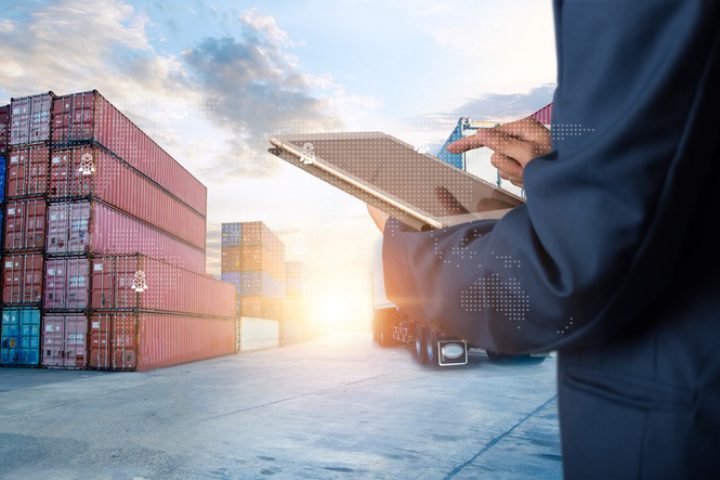The blocking of the Suez Canal has emphasised the importance of data science and artificial intelligence (AI) in maritime operations and combined with the COVID-19 pandemic provides an opportunity for the sector to upgrade infrastructure.
That was one of the prevailing views expressed during the C-Level Panel session on Day 2 of Smart Digital Ports of the Future 2021 (SDP2021), which brought together executives from some of the busiest and most advanced ports in the world.
Oscar Van Veen, Head of Digital Innovations, Port of Rotterdam, said the Port’s data scientists are trying to work out how much of an impact the crisis will have on its container handling operations. was an opportunity for ports to “look forward” and find new ways to improve infrastructure and provide a smoother experience for their clients.
Upgrading to smart technology makes container handling more efficient and has become even more important since the beginning of the COVID-19 pandemic, which has caused trade fluctuations across the world.
Talent acquisition
One of the maritime industry’s biggest challenges in the coming decades will be competing with other industries such as FinTech and Health Tech for the technical talent.
Kenneth Lim, Assistant Chief Executive (Industry), Maritime Port Authority of Singapore (MPA) urged ports and other stakeholders to accelerate efforts to attract talent from the technology sectors as they look to build an efficient digital eco-system and make collaboration across the supply chain easier.
Despite the maritime industry being “a traditional business”, Lim said there is plenty of potential for technology developers as there is the opportunity to implements solutions and innovations across the many locations. Lim intimated that maritime needs to use its international presence to hire the best people.
Agreeing, Van Veen said it was important for the maritime industry to attract the right personnel and that it should take note from companies such as Amazon and Google, where software developers are paid more than managers.
Towards automation
The path towards achieving autonomous operations has been one of the biggest challenges of the maritime industry to date and will involve ports and stakeholders collaborating to find the easiest ways to do so.
Allan Gray, CEO and President, Port of Halifax, said the issues was not so much with the end result but rather the process itself, which some ports have been reluctant to begin, despite the assumed advantages of automation and smart technology.
The answer, Gray suggested, could be to have a mix of automation and manual operations. Implementing autonomous solutions “places a big burden” on ports because it involves effectively duplicating operations.
Additionally, it is important to retain manual operations in mooring, for instance, as well as install autonomous solutions and that sufficiently training the workforce is critical.
In some areas of the transition, it is important for ports to provide the business case for automation, such as with 5G, which is becoming increasingly popular as the yard and container handling equipment is upgraded.
Gray said this was a particularly big challenge for smaller ports and terminals as making the business case and finding the right network provider is harder than it is for larger, established ones.
Written by Max Schwerdtfeger



